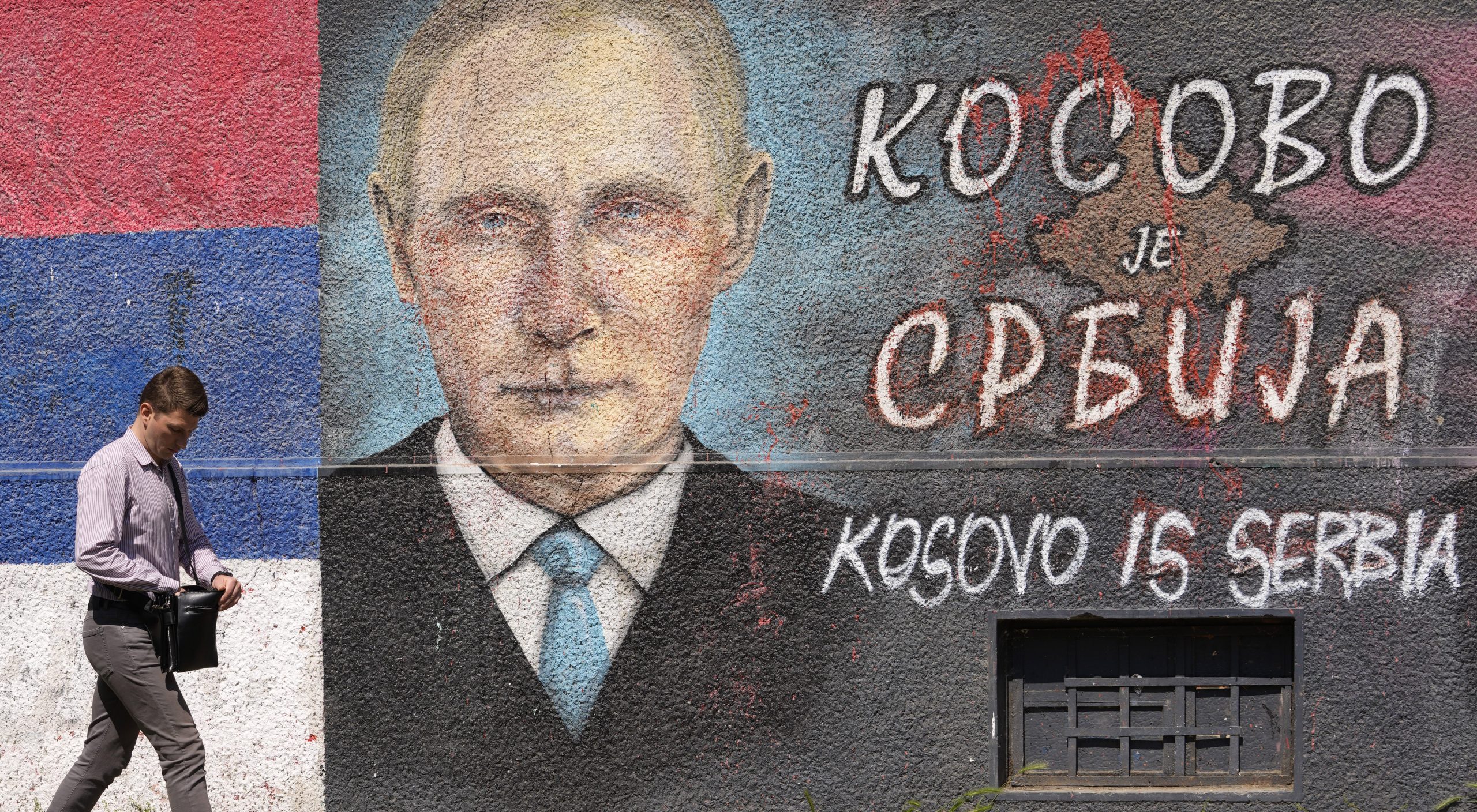The government of Kosovo has agreed to postpone implementing restrictions on Serbian cars amid growing tensions with Serbia as the two nations attempt another round of negotiations.
The new rules, which would require minority Serbs living in Kosovo to adopt license plates issued by the Kosovar government and acquire an additional entry-exit document when crossing the border with Serbia, are some of the latest moves by Pristina to exercise full institutional control over the region, according to the Washington Post. Serb communities, concentrated in the north, have staunchly resisted such measures because they consider themselves part of Serbia.
BALKAN STABILITY REQUIRES SERBIA-KOSOVO AGREEMENT

“The overall security situation in the Northern municipalities of Kosovo is tense. The NATO-led KFOR mission is monitoring closely and is prepared to intervene if stability is jeopardized,” a statement from NATO’s Kosovo Force, a peacekeeping force that is stationed in the region since the withdrawal of Serb forces in 1999, said on Saturday. “Our NATO-led KFOR mission is fully focused on the daily implementation of its UN mandate to ensure a safe and secure environment and freedom of movement for all the people of Kosovo.”
— @NATO – KFOR (@NATO_KFOR) July 31, 2022
Serbs in the north took up arms and used trucks filled with gravel to set up blockades at border crossings between Kosovo and Serbia after the license plate restrictions were announced, according to Balkan Insight. Though shots were reportedly fired “towards police units,” no casualties were reported by either side.
Under pressure from allies in the United States and European Union, Kosovar Prime Minister Albin Kurti announced that the new rules would be postponed for 30 days under the condition that all barricades be removed and freedom of movement be restored. Although most barricades have been removed, barricades at two border crossings remain.
In cooperation with our international allies, we pledge to postpone implementation of decisions on car plates & entry-exit documents at border crossing points w/ Serbia for 30 days, on the condition that all barricades are removed & complete freedom of movement is restored. pic.twitter.com/oJNaQi0qPO
— Albin Kurti (@albinkurti) July 31, 2022
Kosovo and Serbia accuse each other of stirring up tensions.
“The goal [of the Kosovo government] was to invade the north of Kosovo … and deal with Serb people who are defending freedom of movement and their right to survive in Kosovo,” Petar Petkovic, head of the Serbian government’s Office for Kosovo and Metohija, told Serbian media outlet RTS on Saturday. Serbian President Aleksandar Vucic echoed this sentiment, promising that Serbia would act “if they dare to start persecuting Serbs, killing Serbs.”
Kurti defended the new rulings while accusing Serb authorities in Belgrade of stirring up tensions.
“There is no place for tensions. There are no possibilities for instability because we are doing something legitimate and legal. Those who speak of violence, blockages, instability, and tensions are speaking about themselves, not for us,” he said.
CLICK HERE FOR MORE FROM THE WASHINGTON EXAMINER
Kosovo has existed under an unsteady peace between the country’s majority Muslim Albanian population and its minority Orthodox Christian Serbs, both of whom have claimed Kosovo since the cessation of direct hostilities in 1999 following a NATO-led intervention.
Kosovo declared independence in 2008, but it is only recognized by 39 states, according to Chatham House, a London-based policy think tank. Serbia, with extensive historical ties to the region, has been reluctant to recognize Kosovo, a key sticking point in negotiations between the nations.

